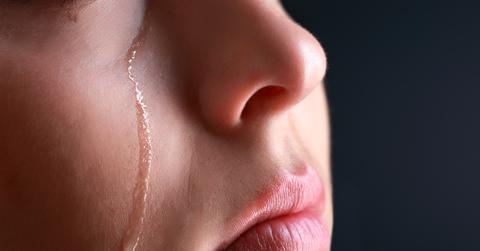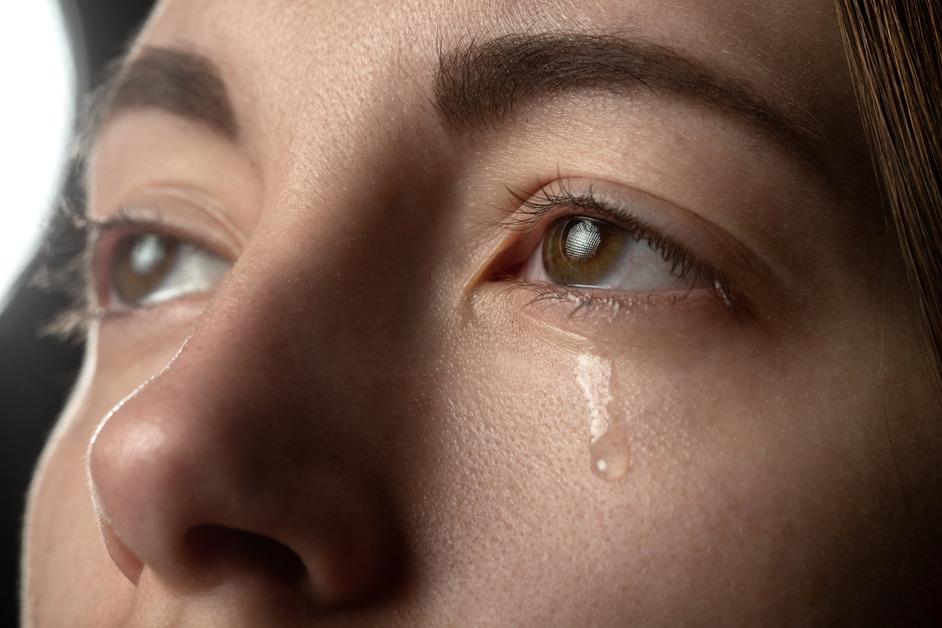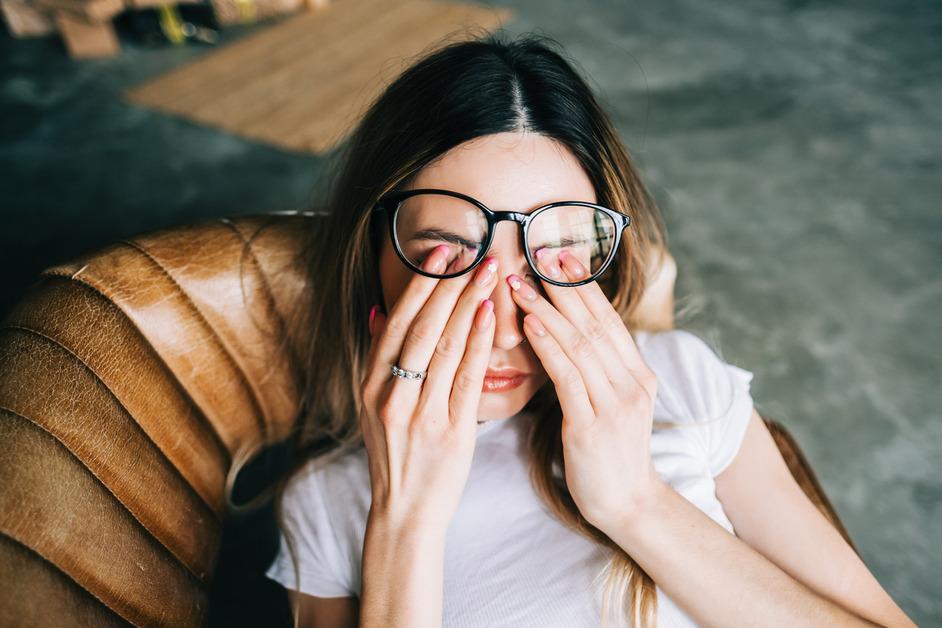Does Crying Make Your Skin Glow? Why Tears Are Not the Best Facial Cleanser
Published Jan. 15 2024, 9:49 a.m. ET

We all know crying can soothe the soul, but what about the skin? Crying is a natural way for humans to process emotions and benefits our emotional and mental health. When you cry, you reduce your stress levels and increase positive hormones in your body. This is why, ultimately, it can feel like a major relief.
However, your skin may not feel this same relief as tears spilling down your face. While someone may say their skin glows after crying, it’s more likely drying out their face. Here’s exactly what happens to your skin when you cry.

Why does my skin glow after crying?
You may notice your skin looks a little different after shedding some tears. It's common for skin to be mildly irritated after a good cry due to several reasons. According to Healthline, tears' pH is higher than our skin's, and the pH difference could affect your skin's hydration and lead to irritation. However, irritation is usually only harmful if your skin is enduring tears for a while, whereas short-term exposure is fine.
According to Shape, your skin also has a fluid equilibrium, and when you cry, a lot of moisture is released from the top part of your face, making thin layers of skin around your eyes prone to drying out.
Another factor that affects skin hydration is the chemical composition of tears, which contain electrolytes and explain the salty taste of tears. Through osmosis, water moves from inside your skin barrier to the outside when you are crying, which can then leave the skin barrier dehydrated, per MindBodyGreen.

Most criers also wipe and rub their eyes and face while crying. New York-based board-certified dermatologist and assistant professor of dermatology at Mount Sinai School of Medicine, Diane Madfes, M.D., told Shape, "The constant rubbing of the eyes and face while wiping tears away disrupts the skin barrier, which is the outermost layer of skin that helps to seal in moisture and protect you from the outside world."
Crying also leads to increased blood flow around your sinuses and when paired with face rubbing, is where you get the redness and puffiness in your face, per Healthline.

Are tears good for your skin?
Based on the fact that crying often leads to a dry and puffy face, it is unlikely that you will find crying to be good for your skin. However, there are some indirect benefits of crying.
Marie Hayag, M.D., a board-certified dermatologist and founder of 5th Avenue Aesthetics, told Yahoo! Finance, that lysozyme, a protein found in most tears, is made to fight bacteria and fungi, and could technically help fight acne.

However, it isn’t worth crying to get rid of acne. Angie Seelal, PA-C, of Advanced Dermatology PC, told Healthline that when crying, “Rubbing your eyes or using certain tissues to wipe your face can affect your skin and cause inflammation, darken the skin, and even irritate acne in some cases.”
Yet, crying is important for your health. According to MindBodyGreen, crying is a major stress reliever. When you cry, your body reduces stress hormones and increases endorphins and oxytocin, which can feel like a physical and psychological pain reliever.
Another thing to note: High stress is linked to cortisol production, which is linked to acne. So, crying may be indirectly good for your skin.